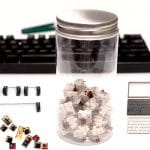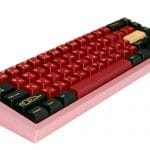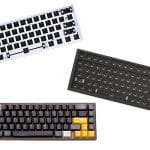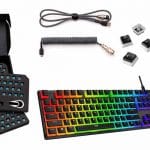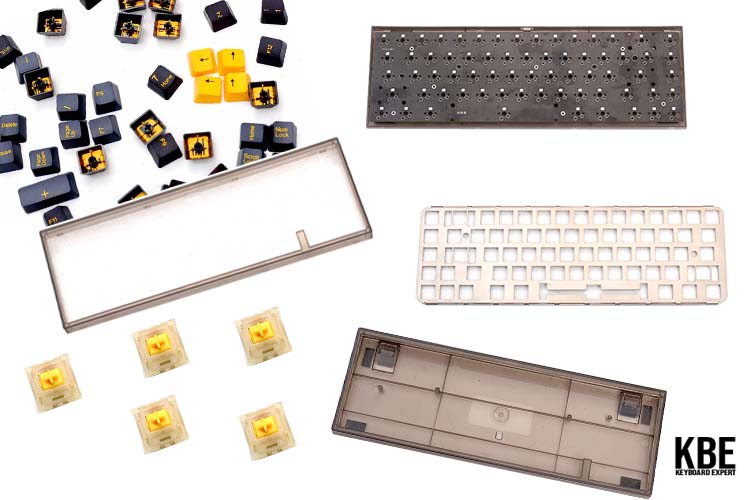
The main perk of owning a mechanical keyboard is that they feel better than regular membrane keyboards. However, more recently, enthusiasts have been very critical of the sound of their keyboards. To most, the way your keyboard sounds is just as important as how it feels.
Mechanical keyboards have different sound profiles. Some have a lower pitch which is also known as thocky, while others have a higher pitch and are known as clacky. Additionally, different factors such as the case, plate material, plate/PCB mounting, and the switches used affect how your keyboard sounds.
If you are new in the mechanical keyboard hobby and are confused with all the sound terms that everyone is throwing, then you have come to the right place. In this article, we will be going through everything you need to learn about mechanical keyboard sound profiles.
We’ll be talking about key concepts such as the difference between “thocky” and “clacky” keyboards. We will also be going through other terms such as “hollowing sounding keyboards,” as well as the different factors that will affect the sound profile of your keyboard.
What is a Keyboard Sound Signature/Profile?
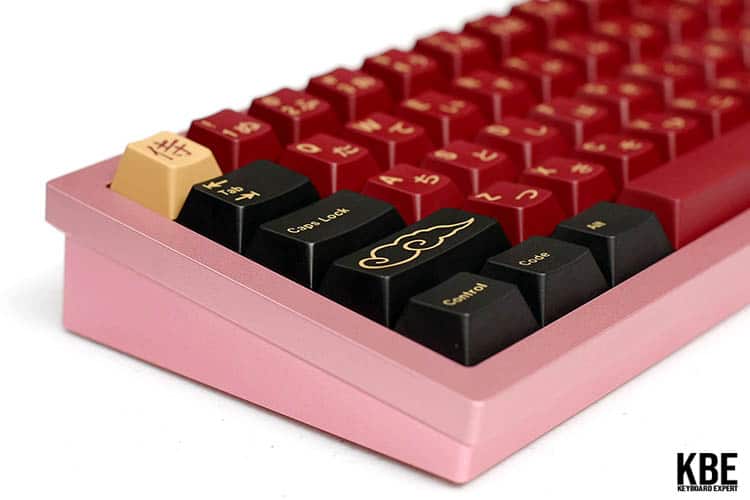
To put it simply, keyboard sound signature pertains to the characteristics of the sound of your keyboard. If you are part of the audiophile community, then you are most likely to be familiar with this term. However, the term sound signature isn’t quite as complicated in the world of mechanical keyboards.
There are no tools to measure the sound signature of keyboards. In fact, describing how your keyboard sounds is extremely straightforward.
You do not need to train your ears in order to appreciate the sound of your keyboard. You will immediately know whether or not your keyboard sounds good.
For mechanical keyboards, there are generally only a handful of sound profiles. The two most common ones are thocky and clacky.
Thocky vs. Clacky Sound Profiles
These two terms are often thrown around in the mechanical keyboard hobby. And at first, it might seem confusing. However, these two sounds can be easily described using simple terms.
When talking about thocky keyboards or thocky switches, these usually pertain to a lower-pitched keyboard. And, of course, when talking about clacky switches and keyboards, these are usually pertaining to the higher-pitched keyboards.
Both of these sound profiles can sound extremely good. A better sound profile will highly depend on your personal preference.
Factors That Affect Sound
There are numerous factors that affect the sound signature of your keyboard. These include the switches used, the plate material, plate mounting style, the case material, case dampening used, and the keycaps.
Switches
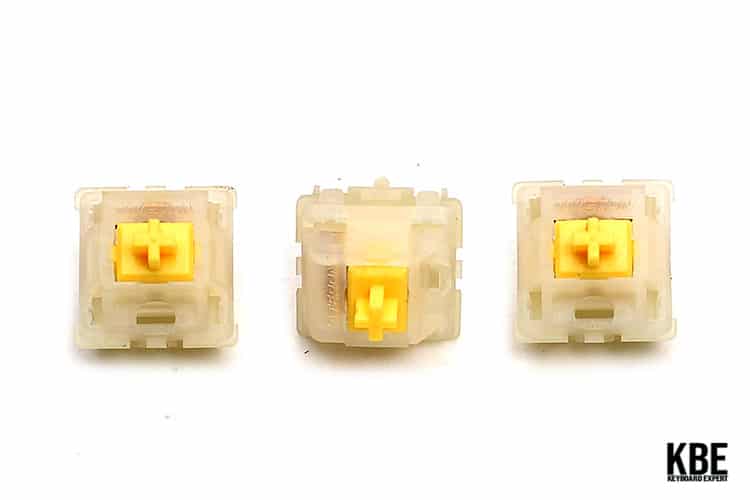
Different switches will sound completely different from one another. We already know based on our past discussions that there are three keyboard switch types, each with its own unique sound characteristics. Clicky switches will have a sharp clicky sound, while the other two switch types will generally be quieter.
However, different switch models will also sound different from one another. Gateron Milky Yellow switches, for instance, will sound different from other linear switches such as the Gateron Ink Black V2, Durock L7, etc. Also, different switches can sound slightly different depending on what keyboard you mount them to.
Plate Material
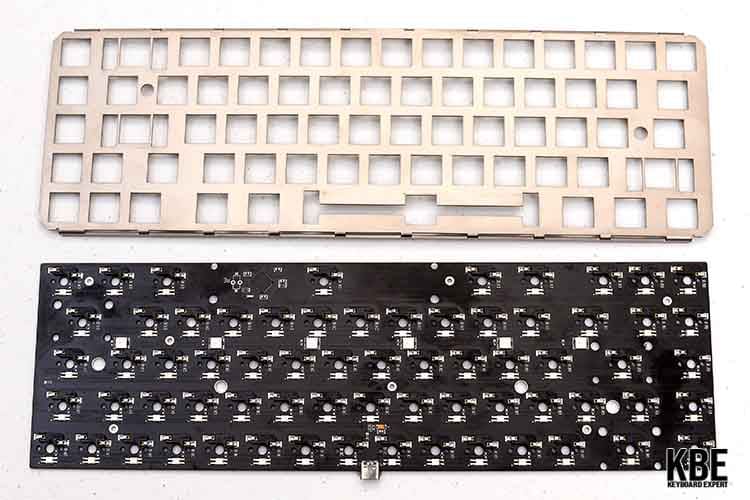
Another factor that can affect the sound profile of your keyboard is the plate material. To quickly summarize our points from our plate material guide, some plate materials can make your keyboard sound louder or softer.
More rigid materials, such as brass and aluminum, are known for introducing more unwanted pings and noise during typing. Other materials, such as FR4, and other plate options, such as half plate and plateless, can significantly help your switches sound more natural since the plate is not coloring the sound.
Plate Mounting
In addition to plate material, the way the plate and PCB are mounted to the keyboard can also affect the sound of your keyboard. To give you a better idea, the two most popular mounting styles (top mount and gasket mount) can slightly sound different from one another.
Most enthusiasts describe the sound of top-mounted boards to be drier while gasket-mounted boards sound creamier. A simpler explanation would be that top-mounted boards introduce no coloration to the sound of the switches. The sound that you hear is usually how the switches are intended to sound.
Gasket-mounted boards, on the other hand, introduce a more pleasant coloration, specifically to the top end. High frequency sounds that are generated from typing sound more well-rounded. Other plate mounting options have their own unique sound characteristics and will certainly affect the overall sound of your keyboard.
Case Material
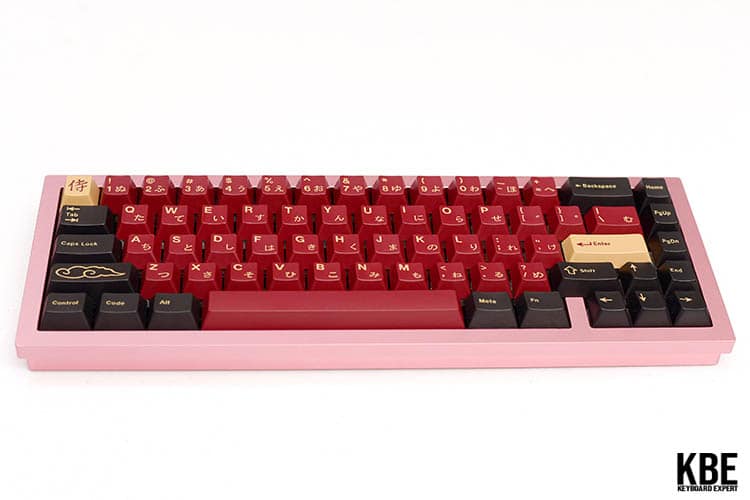
Aside from the plate material and plate mounting style, the chassis of your keyboard will also play a role in terms of how your keyboard will sound. As we have learned from our Keyboard Case Material Guide, there are several case materials that you can use for your custom keyboard build.
The most common ones are plastic, aluminum, polycarbonate (PC), and acrylic. To demonstrate the differences in sound, we will mostly be referring to aluminum and polycarbonate.
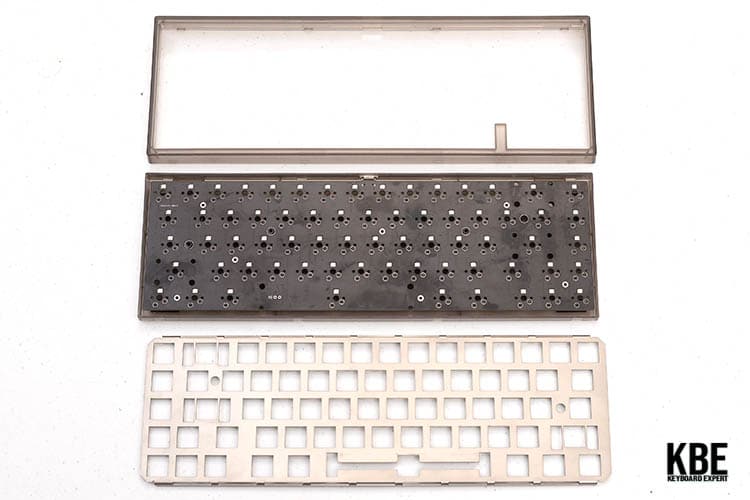
PC cases are known for giving a “thocky” sound profile. Even without little to no dampening materials, PC cases can give that satisfying bassy sound profile that a lot of enthusiasts love.
Aluminum cases, on the other hand, are known for having different issues such as “hollowness” and case pings. Applying case dampening materials is usually required to help your keyboard sound more full and less like a tin can.
Case Dampening
Case dampening usually refers to the foam or silicone material that is placed inside the case. These are usually used to fill up the case and make them sound less hollow.
Adding foam to your case usually leads to a “thockier” sounding keyboard. However, it is generally advised not to put too much foam, or else your keyboard will sound like every other keyboard. We will be discussing why later in the article.
Keycaps
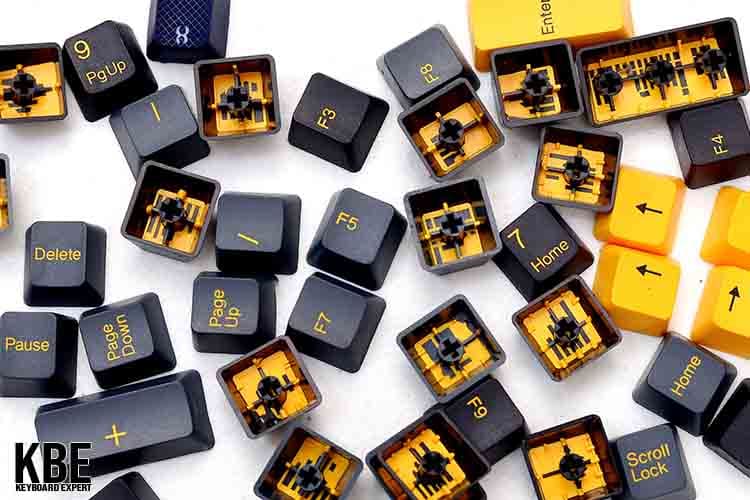
The last factor that we will be discussing today is the keycaps. This may sound surprising to some. However, the keycaps do, in fact, play a role in how your keyboard will sound.
Keycaps may seem quite simple at first. However, there are plenty of things going on with keycaps.
Different keycaps will have different attributes. Aside from the fact that they are either made of PBT or ABS plastic, different keycaps will also have varying thicknesses. Some keycaps are thin, while others are thick.
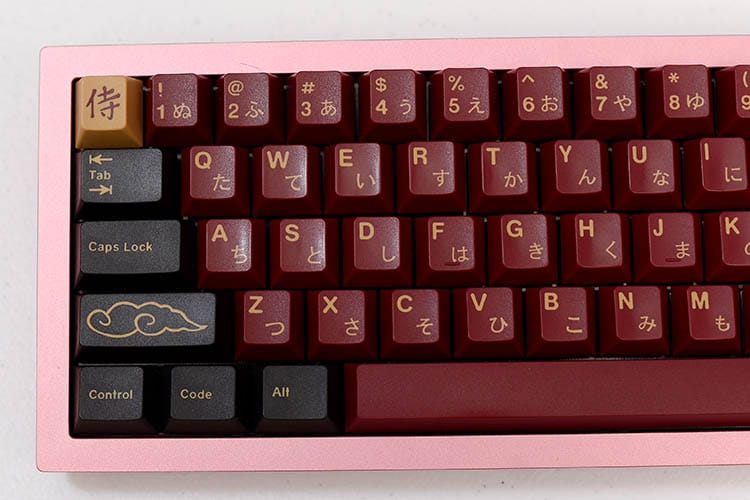
Thicker keycaps will usually produce a fuller sound. Also, taller keycap profiles, such as SA keycaps and all their variants will naturally sound fuller due to how thick they are.
Most enthusiasts generally prefer certain brands of keycaps since they have been proven to be good sounding. Some of these keycap brands include GMK, ePBT, Geekark, and NPBT.
Keyboard Sound Profile FAQs
How Do You Know if a Keyboard Sounds Satisfying?
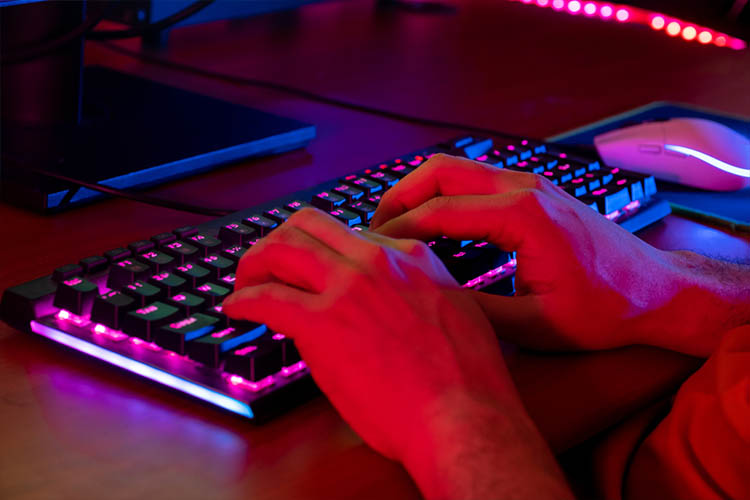
The sound of a keyboard is highly subjective. What sounds great for one person might not satisfy the other. However, there are few things that are generally accepted by the community.
One of those is that a loud-sounding keyboard isn’t always good sounding. Clicky switches such as Cherry MX Blues are generally not preferred by the community. For most users, their clicky sound can sound incredibly annoying over time. And if a keyboard is not built well, the sound that they can produce can be very chaotic and can clash with other noise such as stabilizer rattle.
For most users, a great-sounding keyboard is one that produces a relaxing sound. The Jelly Epoch, for example, produces a very relaxing sound similar to the sound of marbles hitting each other. It isn’t a quiet board, but it is what most people consider a great-sounding keyboard.
What is a “Hollow Sounding” Keyboard?
The term hollow-sounding is often thrown around in the mechanical keyboard community. However, this term can be quite confusing since some sound tests cannot fully recreate this issue. With that said, the hollow sound can be easily explained.
Anything that is empty will have more echo and reverberation. Also, the overall sound that they produce is thin. For example, if you tap an empty can, you will hear a tinny and empty sound with lots of reverberation. The same can be said for some custom keyboards.
Some keyboards have a lot of empty space in between the case and the PCB. This creates an empty area where sound can reverberate. And the end result of your keyboard will produce a “hollow sound.”
How to Reduce the Hollow Sound?
There are numerous ways to reduce the hollow sound of your keyboard. The simplest fix is to use a dampening material such as foam or aluminum.
Most enthusiasts in the past have used the foam that came with their keyboard or any foam lying around. However, it has been proven that specific kinds of foam will work better than others.
To get the best results, we highly recommend getting specialized foam from vendors such as KBDFans and Stupidfish.
Why Do Some Keyboards Sound the Same?
All keyboard models are designed to sound unique. However, you may be wondering why some custom keyboard builds sound the same. And while there is no definite answer, one usual culprit is putting too much foam inside your case.
As we have discussed earlier, dampening materials such as foam are almost always required to remove the hollowness from your keyboard as well as any unnecessary sounds. However, using too much foam can make your keyboard sound generic.
If you dampen too much noise, then you will be killing the natural sound that is produced by your switches. The end result will be “thocky.” However, the unique sound of your keyboard will be lost.
Why Do Typing Tests Sound the Same?
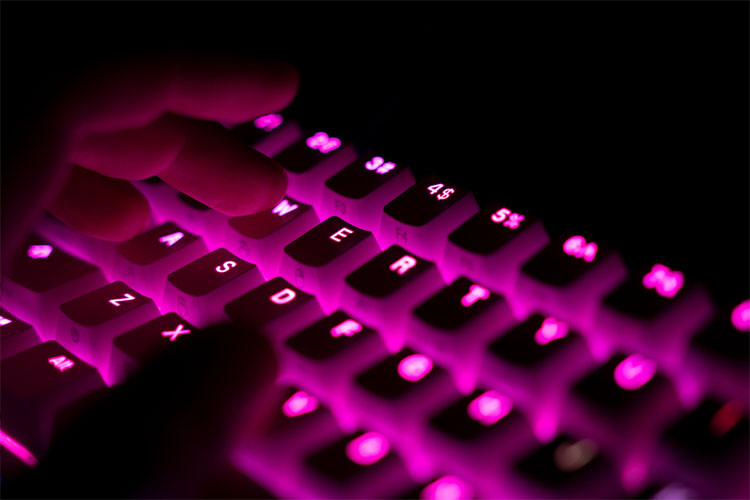
One thing that you have to understand with typing tests is that most videos cannot accurately reproduce the sound of the custom keyboards they are showcasing. And while some typing tests have a higher quality than others, most of the videos that you will find will have some issues.
There are various reasons why this is the case. The most common reason is that most keyboard builders and content creators do not have the necessary gear to capture typing tests.
Some content creators only use whatever mic they have, even if they are not the right fit for the job. Most typing tests are also not recorded with proper room treatment, which can affect the accuracy of the recording. However, this is pretty reasonable since not everyone is a professional sound engineer with all the cutting-edge mics and gear to capture the most accurate sound.
Again, there are still plenty of typing tests that capture the essence of the keyboard they are showcasing. Just do not expect that the sound of the keyboard you are interested in will be 100% the same as the typing test that you have watched.
Does the Sound of Your Keyboard Matter?
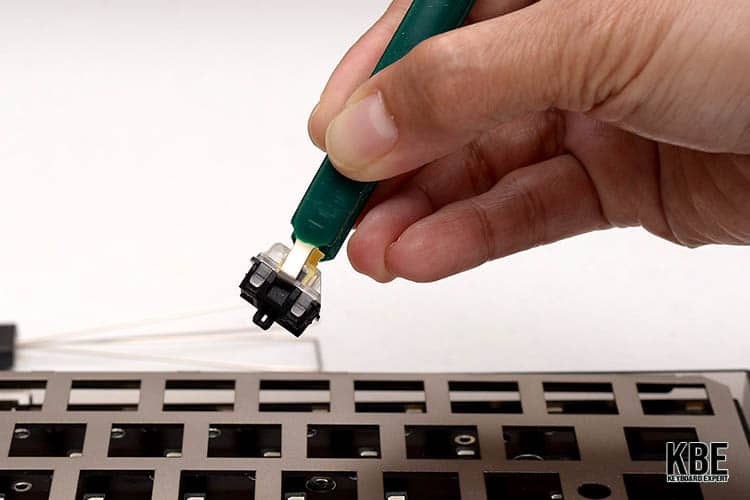
As we have mentioned earlier, the sound of a certain keyboard can make or break their purchase decisions. And to the majority of keyboard enthusiasts, the sound of the keyboard is just as important as the typing feel.
Of course, not everyone will think the same. Some users may not even mind the sound quality of their keyboards, especially since they will be using headphones, IEMs, or speakers while using their keyboards.
However, we cannot ignore that the sound of mechanical keyboards has been an essential part of the keyboard hobby. And you cannot deny that a great-sounding keyboard is incredibly satisfying to use.
But going back to the question, does the sound of your keyboard truly matter? While some people like to over-exaggerate it, having a great sounding board is always a plus. It indicates that your mechanical keyboard is built with the best parts available. And while not always the case, most great-sounding keyboards also give a satisfying typing experience.

The KBE team is dedicated to sharing our knowledge and creating useful resources about computer keyboards. This article was written as a team collaboration, combining our knowledge and years of experience using, building and modding keyboards. Meet the team here.
